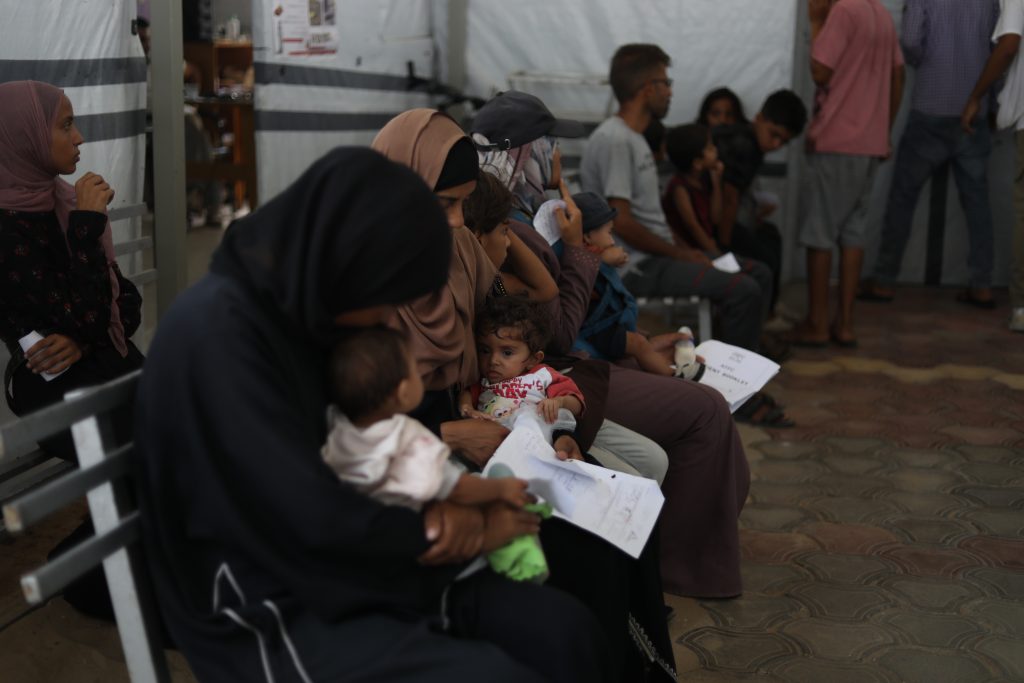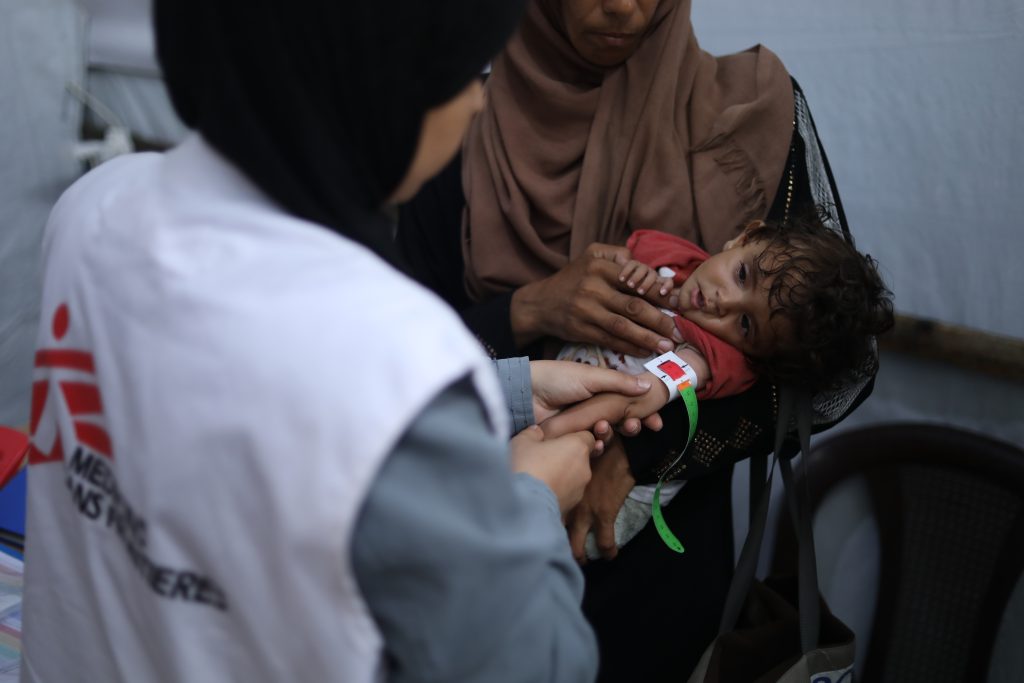Over 100 organizations call for an end to Israel’s weaponization of aid
14 August 2025– Despite claims by Israeli authorities that there is no limit on humanitarian aid entering Gaza, most major international NGOs have been unable to deliver a single truck of lifesaving supplies since 2 March.
Instead of clearing the growing backlog of goods, Israeli authorities have rejected requests from dozens of NGOs to bring in lifesaving goods, citing that these organizations are “not authorized to deliver aid.” In July alone, over 60 requests were denied under this justification.
This obstruction has left millions of dollars’ worth of food, medicine, water, and shelter itemsstranded in warehouses across Jordan and Egypt, while Palestinians are being starved.
Many of the NGOs now told they are not “authorized” to deliver aid have worked in Gaza for decades, are trusted by communities and experienced in delivering aid safely. Their exclusion has left hospitals without basic supplies, children, people with disabilities, and older people dying from hunger and preventable illnesses, and aid workers themselves going to work hungry.
The obstruction is tied to new INGO registration rules introduced in March. Under these new rules, registration can be denied on the basis of vague and politicized criteria, such as alleged “delegitimization” of the state of Israel. INGOs warned the process was designed to control
independent organizations, silence advocacy, and censor humanitarian reporting. This new bureaucratic obstruction is inconsistent with established international law as it entrenches Israel’s control and annexation of the occupied Palestinian territory.
Unless INGOs submit to the full registration requirements, including the mandatory submission of details of private donors, complete Palestinian staff lists and other sensitive information about personnel for so-called “security” vetting to Israeli authorities, many could be forced to halt operations in Gaza and the West Bank, including East Jerusalem, and remove all international staff within 60 days. Some organizations have even been issued a seven-day ultimatum to provide Palestinian staff lists.
NGOs have made clear that sharing such data is unlawful (including under relevant data protection laws), unsafe, and incompatible with humanitarian principles. In the deadliest context for aid workers worldwide, where 98 percent of those humanitarians killed were Palestinian, NGOs have no guarantees that handing over such information would not put staff at further risk, or be used to advance the government of Israel’s stated military and political aims.
Today, INGOs’ fears have proven true: the registration system is now being used to further block aid and deny food and medicine in the midst of the worst-case scenario of famine.

These restrictions are part of a broader strategy that includes the so-called “GHF” scheme – a militarized distribution mechanism promoted as a humanitarian solution. In reality, it is a deadly tool of control, with at least 859 Palestinians killed around “GHF” sites since it began operating.
Both the “GHF” scheme and the INGO registration process aim to block impartial aid, exclude Palestinian actors, and replace trusted humanitarian organizations with mechanisms that serve political and military objectives. They come as the government of Israel escalates its military
offensive and deepens its occupation in Gaza, making clear these measures are part of a broader strategy to entrench control and erase Palestinian presence.

We call on all states and donors to:
- Press Israel to end the weaponization of aid, including through bureaucratic obstruction, such as the INGO registration procedures.
- Insist that INGOs are not forced to share sensitive personal information, in violation of the General Data Protection Regulation (GDPR), or compromise staff safety or independence as a condition for delivering aid.
- Demand the immediate and unconditional opening of all land crossings and conditions for the delivery of lifesaving humanitarian aid.












